
Sedges have enjoyed unprecedented attention the last few years. Articles in The Washington Post (2017), Horticulture (2022) and Landscape Architecture (2023) introduced many gardeners to plants in the genus Carex, which are commonly referred to as sedges.
While there are colorful, variegated selections from Asia that have been in cultivation for decades, it's the North American natives getting the press. A 2023 trials report by Mt. Cuba Center put them squarely in the spotlight. The research.
team evaluated 70 different species and cultivars of native carex for the MidAtlantic region.
That may seem like a big number, but it's a fraction of the more than 500 sedges native to North America. Given the range of species, there's a sedge for every landscape situation. However, the availability of native sedges may be limited depending on where you're located. The horticultural industry is aware of this and is eagerly bringing more of them into cultivation.
The attention is notable given native sedges' low-key appearance. Their flowers tend to be small, and only a few species have showy blooms. Rather, their strength lies in their grasslike foliage and unfussy nature. They are perfectly suited to a supporting role in the garden.
Sedges' varying shades of green provide a backdrop for flashier flowering companions. The narrow blades lend visual texture that contrasts beautifully with broaderleaved perennials. They're relatively easy to grow and don't require a lot of attention.
They're also go-to plants for partial sun to shade, where turf and warm-season ornamental grasses struggle.
Although they're beautiful in their own right, I think of sedges as the backup singers of the plant world. They're not usually the stars of the show, but they tie it all together and make the performer in the spotlight shine. They're the foundation for successful combinations.
CAREX, CAREX EVERYWHERE
This story is from the March - April 2024 edition of Horticulture.
Start your 7-day Magzter GOLD free trial to access thousands of curated premium stories, and 9,000+ magazines and newspapers.
Already a subscriber ? Sign In
This story is from the March - April 2024 edition of Horticulture.
Start your 7-day Magzter GOLD free trial to access thousands of curated premium stories, and 9,000+ magazines and newspapers.
Already a subscriber? Sign In

Pot It Up
Shake up the containergarden with theseNorth America –native perennials

THE GARDEN PATH TO PERDITION
I WAS CRUISING RIGHT ALONG, feeling okay about myself, when I came across a list of the Seven Deadly Sins.
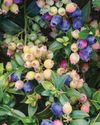
A Productive PATIO
Tiny fruit, vegetable and herb plants help gardeners maximize any sort of growing space
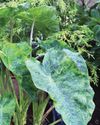
TROPICAL FUSION
A FUSS-FREE APPROACH TO USING BOLD TROPICAL PLANTS IN ANY TEMPERATE GARDEN

WINTER READING
Pass the time with any of these inspiring books
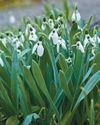
SENSING A PATTERN
Greg Coppa reflects on an odd weather year and what continued warming may mean for his Rhode Island garden
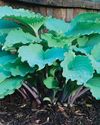
TOP-PRIZE PERENNIALS
A foliage masterpiece for shade and a late bloomer for sun

MARK WESSEL
What's new for fruit and vegetable gardeners?
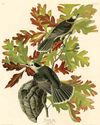
KINGS OF THE NORTHERN FORESTS
A look at the trees, shrubs and perennial plants that bolster life in Ecoregion 5

PROJECT FEEDERWATCH
Gardeners can help scientists know just where the birds are in winter